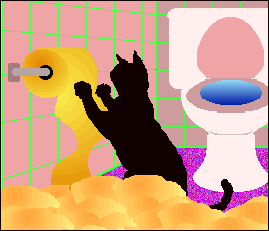 On our writing journey, we read many books. Usually. Hopefully. We need to be, if we want to broaden our own range of writing skills.
On our writing journey, we read many books. Usually. Hopefully. We need to be, if we want to broaden our own range of writing skills.However, the reading book population may be on a downswing. When asked about the new Amazon Kindle product, Steve Jobs CEO of Apple computer had this to say: “It doesn’t matter how good or bad the product is, the fact is that people don’t read anymore,” he said. “Forty percent of the people in the U.S. read one book or less last year. The whole conception is flawed at the top because people don’t read anymore.”
Yet we know people are reading. But what? Blogs? Text messages? Websites? Emails? Knols. All of the above and more. The challenge is to read more. And certainly more than one book a year.
For those of us who will starve before we give up reading hard-copy books, do we know how to really read a book? A crazy question? NOT.
I first heard about a book, written in 1940, called How To Read A Book from the Rev. Billy Graham. For sure, he doesn't lie. So I checked it out! And it has been on my fav book list since. I invite all the students in my writing workshop to add this book to their library.
A Few Highlights:
Over 300 year ago, Pascal observed, When we read too fast or too slowly, we understand nothing. Okay, so does it take a rocket scientist to figure that out? I think not. But we should consider these wise but simple words. And find ways to better improve our comprehension coupled with reading at a glance.
In this 21st century, reading faster has become a necessity if we want to keep up with the inundation of information thrown at us via technology. The days of just books, newspapers, and a few magazines are vanishing.
So while we take a greater look at how to read a book, this challenge does transcend into the world of reading technology. And please don't consider for a nano-second that tech is going to slow down. Quite the contrary.
For sure, I want to absorb what I read. I don't want a rote gathering of info just to get me by or to say that I read a particular piece of work.
We read for information, understanding, and entertainment. The last of these is the least taxing on our minds.
For me information and understanding are critical for my well being! I thrive on non-fiction and always have. I do recognize Fluffy reading is important for chilling out in this margin-to-margin world. I need more of it in my diet.
Yet, informative and understanding reading can be relaxing as well.
But to read everything at the Fluff level leaves much to be desired by the brain.
To read what we already know does not add to our abilities to grow intellectually. Rather to read the work of an author who is far beyond where we are presents a grand opportunity to evolve. And don't be threatened by that word. Our minds are building blocks. Layer upon layer we learn. Unless we choose otherwise.
Communication between unequals is to be desired or how else can one person learn from another person (Adler, and Van Doren)?
There are four levels of reading:
- Elementary Reading. Simple enough? See Jane and Spot run. Sight reading. That is how I learned. Some of us were fortunate to learn phonics as well. They are both great tools to learn to read at this first level.
- Inspectional Reading: Which can be labeled as skimming. This type is based on time. Limited. You want to fly through this blog to get onto the next event of the day. So you skim. But, still you gain. You're quickly hoping to absorb AMAP-as much as possible.
- Analytical Reading: You want the deepest and your time frame is not under pressure. You want to understand. It's intensive. The work becomes his own. He grasps it. He wears it. He lives it.
- Syntopical Reading: The highest level. You begin to read not one, but many authors or books on a subject. Your goal is to gather and define and know beyond measure. I would say this would fit into the R&D category. Research and Development.
All of these may or may not blend together at some point and time. They are all applicable to our development mentally, emotionally, spiritually, as well as physically.
Having said all that, let's take a look at how to know you even want to read a book. Adler and Van Doren suggest we need to think like a detective. So Get Smart, Agent 99.
Be A Book DETECTIVE:
Take A Look At The Table Of Contents:
Would you not want the ingredients of an unfamiliar recipe? I hope so. Think of the TOC as those needed ingredients you must have for that desired seven-course meal you want to make. Most often, you will find a plethora of delicious food just sitting there waiting to be eaten. From that very table setting, you may change your mind about even taking your first bite into the book in question.
Too, you will gain a sense of the book's structure as well the adventure you are about to encounter. Always read the TOC.
Take a Deeper Look Into The Heart Of The Index:
The index is a good place to rest a spell. You will find a well of info in certain books nestled in those last few pages. Too often the index is overlooked when it probably has
Dust Over the Jacket:
Always read the dust jacket (or back of the book). To keep the dust off? Sure, but while you are doing that, take a peek at the publisher's thoughts. It may be full of fluff, to which you will notice immediately. However, often the author has helped create this great marketing tool. So you might get a better idea what the main points are that she is wanting to bring to the table. Then you may get a clearer image if this is the read for you at this time.
Skim the inside of the book. Scan over the words and paragraphs. See if there is anything that jumps out at you, good or bad. I can think of a biography I read, that had I scanned the pages, I might have changed my mind. The vulgarity was bumper-to-bumper. The writer felt the need to give notice to every curse word the person ever said. As the reader, I wanted more substance on the life of the person, not that single habit.
To Read Or Not To Read?
The bottom line is do you want to spend your valuable time with the author, the book? How does it fit into your life at this time? Will it be productive? Would another time be better to engage with the book? If so, put it on your Going To Read list. If now is the moment, jump in and enjoy every second of the ride; I guarantee great gas mileage.
Photo: http://www.amazon.com/ Purchase How To Read A Book and look at the TOC as well!
Copyright © 2008 by Ellen M. Samples. All rights reserved.







No comments:
Post a Comment